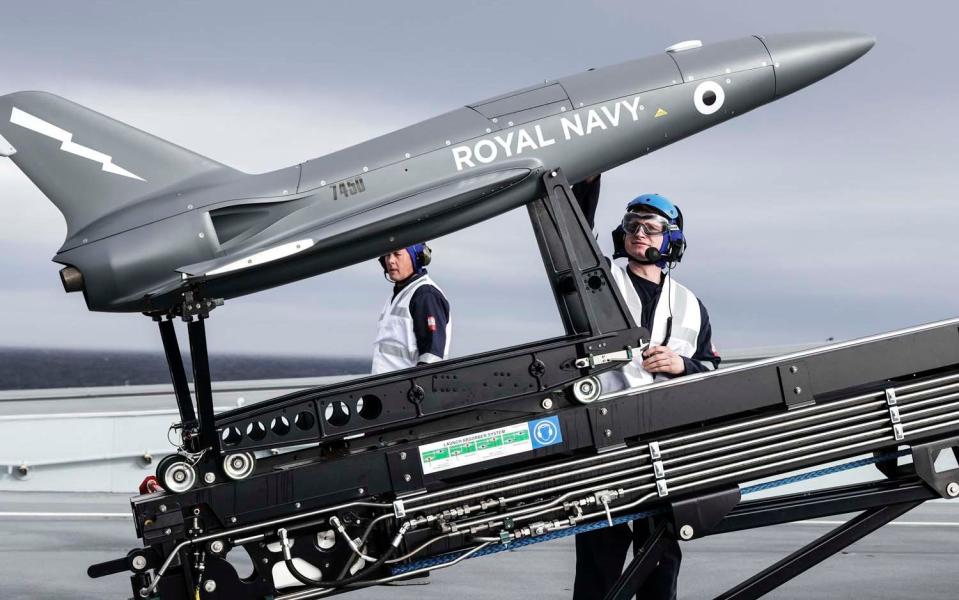Western countries are gearing up for war for the first time in decades

Western nations are taking steps to put their armed forces on a war footing for the first time in decades, according to the boss of defence-technology company QinetiQ.
Russia’s invasion of Ukraine, concerns about China’s ambitions in the Pacific, escalations in the Israel-Hamas conflict and Houthi attacks on shipping in the Red Sea have spurred Britain, the US, Australia and their allies to invest time and money in testing the readiness of air, sea and land forces, said Steve Wadey, QinetiQ’s chief executive.
The push to ensure that militaries are war-ready has picked up pace in recent months, Mr Wadey said on Thursday, leading to a surge in demand for services offered by QinetiQ’s Test & Evaluation and Training & Mission Rehearsal divisions.
He said: “As you come to realise that the world is a scary place you have to train and be operationally ready to fight.” That has spurred demand for both “physical and virtual” testing and training equipment produced by the company.
QinetiQ’s revenue and underlying operating profit rose 20pc in the 12 months through March, prompting it to upgrade sales and earnings expectations for the current year.
Production of aerial target systems, which allow naval vessels and warplanes to hone their ability to track and down enemy missiles, aircraft and munitions, reached record levels.
Among the most in-demand products are Banshee target drones, which feature two jet engines, fly for up to 45 minutes at speeds close to 450 mph and have been sold to 40 countries.
Banshee featured in Operation Formidable Shield, which took place off the Hebrides last year and saw one of the most complex ever tests of naval and missile defences, with more than 20 ships, 35 aircraft and 4,000 allied personnel participating in live-fire mission rehearsals.

Another product, Rattler, emulates advanced missile threats, including supersonic capability, and is being evaluated by the Pentagon as it tests US laser-tracking technologies.
QinetiQ also provided aircraft and targets for the Talisman Sabre training exercise in Australia that involved 13 nations and 30,000 military personnel.
Mr Wadey said that QinetiQ is well placed to win testing and evaluation work for Australia’s planned nuclear submarine fleet as part of the new Aukus defence pact spurred by Chinese expansionism.
The tests would seek to ensure that the vessels aren’t leaving telltale signatures that allow them to be tracked.
A record 18 of NATO’s 31 member countries are expected to spend 2pc of GDP on defence and security this year, up from 11 a year ago.
As well as being “prepared today,” Western governments are also pouring money into new technology as they seek to anticipate future threats, Mr Wadey said.
The UK has ring-fenced 5pc of the defence budget for R&D, while the US commitment stands at a record $145bn (£114bn).
Referring to the new DragonFire system, which uses a laser weapon to bring down aerial targets, he said: “We’ve seen the proliferation of drones in Ukraine, well you can’t keep firing missiles at them; you need R&D to come up with a solution.”
DragonFire is to be installed on Royal Navy warships for the first time in 2027, providing a low-cost response to threats such as the Houthi drone attacks on vessels patrolling the Red Sea.

 Yahoo Finance
Yahoo Finance 